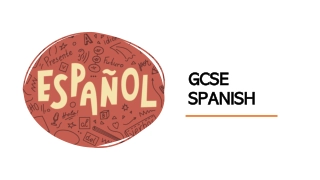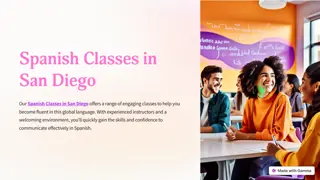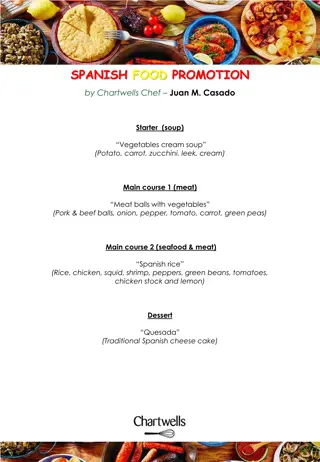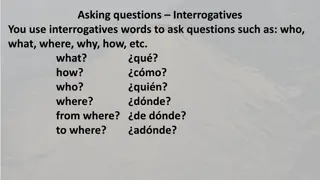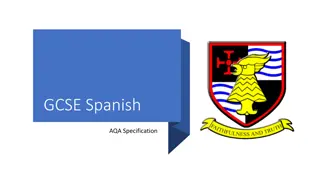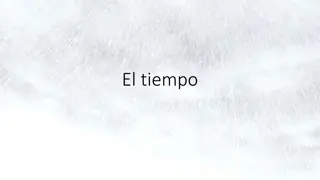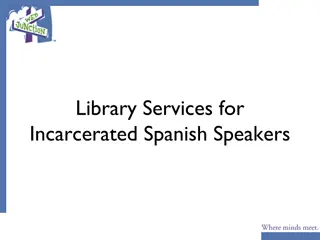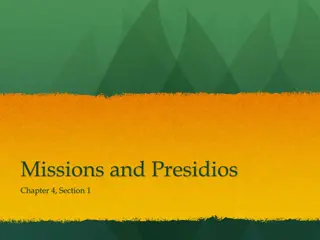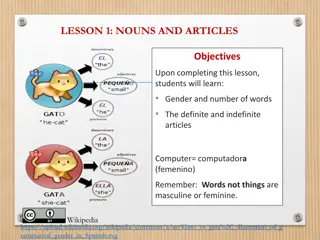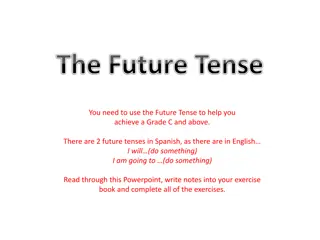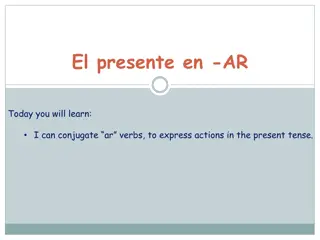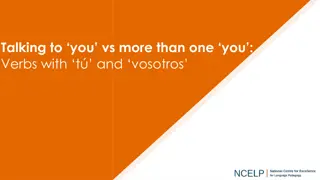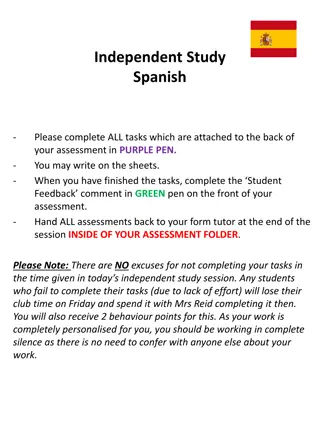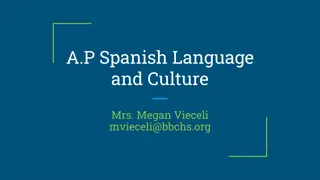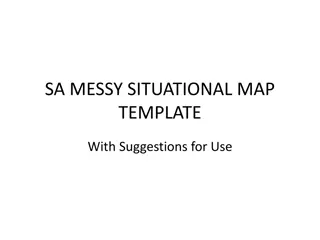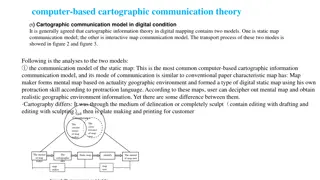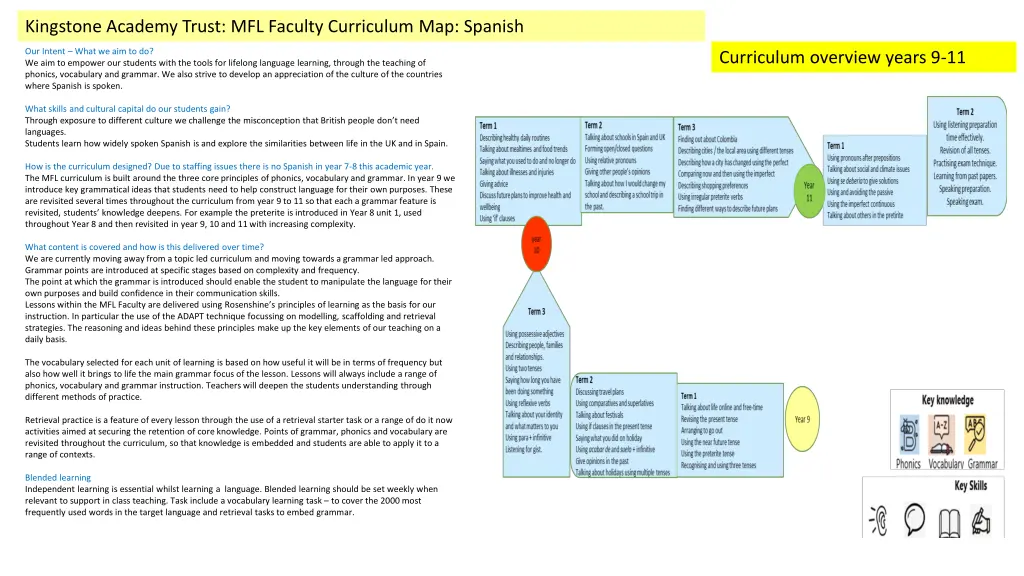
Empowering Students with Lifelong Language Learning: Spanish Curriculum at Kingstone Academy Trust
Explore how Kingstone Academy Trust's MFL Faculty empowers students through phonics, vocabulary, and grammar in their Spanish curriculum. Gain insights into the cultural aspects of Spanish-speaking countries and the career opportunities in Spanish-related fields. Discover the meticulously designed curriculum structure focusing on grammar principles and essential language skills for students across years 9-11, with a blend of in-class and independent learning.
Download Presentation

Please find below an Image/Link to download the presentation.
The content on the website is provided AS IS for your information and personal use only. It may not be sold, licensed, or shared on other websites without obtaining consent from the author. If you encounter any issues during the download, it is possible that the publisher has removed the file from their server.
You are allowed to download the files provided on this website for personal or commercial use, subject to the condition that they are used lawfully. All files are the property of their respective owners.
The content on the website is provided AS IS for your information and personal use only. It may not be sold, licensed, or shared on other websites without obtaining consent from the author.
E N D
Presentation Transcript
Kingstone Academy Trust: MFL Faculty Curriculum Map: Spanish Our Intent What we aim to do? We aim to empower our students with the tools for lifelong language learning, through the teaching of phonics, vocabulary and grammar. We also strive to develop an appreciation of the culture of the countries where Spanish is spoken. Curriculum overview years 9-11 What skills and cultural capital do our students gain? Through exposure to different culture we challenge the misconception that British people don t need languages. Students learn how widely spoken Spanish is and explore the similarities between life in the UK and in Spain. How is the curriculum designed? Due to staffing issues there is no Spanish in year 7-8 this academic year. The MFL curriculum is built around the three core principles of phonics, vocabulary and grammar. In year 9 we introduce key grammatical ideas that students need to help construct language for their own purposes. These are revisited several times throughout the curriculum from year 9 to 11 so that each a grammar feature is revisited, students knowledge deepens. For example the preterite is introduced in Year 8 unit 1, used throughout Year 8 and then revisited in year 9, 10 and 11 with increasing complexity. What content is covered and how is this delivered over time? We are currently moving away from a topic led curriculum and moving towards a grammar led approach. Grammar points are introduced at specific stages based on complexity and frequency. The point at which the grammar is introduced should enable the student to manipulate the language for their own purposes and build confidence in their communication skills. Lessons within the MFL Faculty are delivered using Rosenshine s principles of learning as the basis for our instruction. In particular the use of the ADAPT technique focussing on modelling, scaffolding and retrieval strategies. The reasoning and ideas behind these principles make up the key elements of our teaching on a daily basis. The vocabulary selected for each unit of learning is based on how useful it will be in terms of frequency but also how well it brings to life the main grammar focus of the lesson. Lessons will always include a range of phonics, vocabulary and grammar instruction. Teachers will deepen the students understanding through different methods of practice. Retrieval practice is a feature of every lesson through the use of a retrieval starter task or a range of do it now activities aimed at securing the retention of core knowledge. Points of grammar, phonics and vocabulary are revisited throughout the curriculum, so that knowledge is embedded and students are able to apply it to a range of contexts. Blended learning Independent learning is essential whilst learning a language. Blended learning should be set weekly when relevant to support in class teaching. Task include a vocabulary learning task to cover the 2000 most frequently used words in the target language and retrieval tasks to embed grammar.
Future careers in Spanish. International aid and development; teaching; diplomatic service; sales and marketing; translation and interpretation; journalism; politics . Kingstone Academy Trust: MFL Faculty Curriculum Map: Spanish Term 2 Using listening preparation time effectively. Revision of all tenses. Practising exam technique. Learning from past papers. Speaking preparation. Speaking exam. Term 2 Talking about schools in Spain and UK Forming open/closed questions Using relative pronouns Giving other people s opinions Talking about how I would change my school and describing a school trip in the past. Term 1 Describing healthy daily routines Talking about mealtimes and food trends Saying what you used to do and no longer do Talking about illnesses and injuries Giving advice Discuss future plans to improve health and wellbeing Using if clauses Term 3 Finding out about Colombia Describing cities / the local area using different tenses Describing how a city has changed using the perfect Comparing now and then using the imperfect Describing shopping preferences Using irregular preterite verbs Finding different ways to describe future plans Term 1 Using pronouns after prepositions Talking about social and climate issues Using se deber a to give solutions Using and avoiding the passive Using the imperfect continuous Talking about others in the pretirite Year 11 year 10 Term 3 Using possessive adjectives Describing people, families and relationships. Using two tenses Saying how long you have been doing something Using reflexive verbs Talking about your identity and what matters to you Using para + infinitive Listening for gist. Term 2 Discussing travel plans Using comparatives and superlatives Talking about festivals Using if clauses in the present tense Saying what you did on holiday Using acabar de and suelo + infinitive Give opinions in the past Talking about holidays using multiple tenses Term 1 Talking about life online and free-time Revising the present tense Arranging to go out Using the near future tense Using the preterite tense Recognising and using three tenses Year 9
Year 9 Autumn Term 1 Key knowledge Grammar Ssc sound symbol correspondence Blended learning SMSC links Big picture Saying what people d Divi rtete! Adjectival agreements Vowels: a, e, i, o, u Mixed word vocab lists to learn 20-30 words per week British values - respect Using opinion verbs and sports vocabulary learnt in year 7 to discuss free-time activities Talking about Spanish- speaking sports stars Using adjectives in Spanish Talking about life online Revising the present tense Using expressions of frequency Talking about sports and free-time activities Revising irregular present tense verbs Using opinion verbs and expressions Planning a cinema visit Arranging to go out Using the near future tense Listening for preferences Present tense verbs Regular -ar/-er/-ir Stem-changing verbs [jugar, preferir] 1st Person ver & hacer Healthy relationships with technology and other people High frequency vocab relevant to context Deepening vocabulary knowledge Learning about technology use Using gustar, encantar and interesar (+ noun[s]) to express an opinion Using an opinion verb + infinitive to talk about activities Thinking about technology use affects your life Covering the key structures needed to continue this topic at GCSE level. Irregular verbs in the present tense: ir, ser and tener Near future tense - present tense of ir + a + infinitive Key questions C mo eres? Qu haces con tu m vil/ordenador/port til? Qu actividades haces en tu tiempo libre? Quieres ir [de compras] [ma ana]? A qu hora quedamos?
Year 9 Autumn Term 2 Key knowledge Grammar Ssc sound symbol correspondence Blended learning SMSC links Big picture Saying what people do Soft c cine, nataci n, centro, hice Mixed word vocab lists to learn 20-30 words per week British values - Individual Liberty Using food and drink vocabulary learnt in year 8 to discuss healthy lifestyle choices Divi rtete! Preteritetense Regular verbs -ar, -er and -ir [hablar, comer, salir] Irregulars: ir and ser in the preterite 1st person irregulars: hice, tuve, vi, jugu , llegu , saqu Talking about diet and eating habits Talking about sport and exercise Talking about lifestyle choices Comparative Giving advice Talking about future changes Hard c cant , m sica, com , cuatro, clima Healthy lifestyle choices High frequency vocab relevant to context Learning about healthy lifestyles ch sound chico/a, escuch Deepening vocabulary knowledge Considering your own diet and exercise choices Direct object pronouns Introduction + use with the near future tense Covering the key structures needed to continue this topic at GCSE level. Key questions Qu hiciste? Qu tal fue? Qu haces [los domingos] normalmente? Qu pas [el fin de semana pasado]? Negatives no, nada Near future tense (recap) - present tense of ir + a + infinitive
Year 9 Spring Term 1 Key knowledge Grammar Ssc sound symbol correspondence Blended learning SMSC links Big picture Viajes Me gusta(n) + el/la/los/las + noun Me gusta + infinitive Me gustar a + infinitive [ll] calles, caballos, Fallas, lleva, millones, Sevilla Mixed word vocab lists to learn 20-30 words per week British values - Respect and Tolerance Using holiday vocabulary learnt in year 8 to discuss holidays in greater detail Describing a photo [j] [ge] [gi] [h]: genial, Gij n, tarjeta, hotel Global Perspective Discussing travel plans High frequency vocab relevant to context Learning about other cultures Se puede(n) + infinitive Talking about festivals in the Spanish-speaking world Comparatives m s/menos + tan Irregulars - mejor/peor mayor/menor Deepening vocabulary knowledge Considering where you d like to travel to Saying what you did on holiday Covering the key structures needed to continue this topic at GCSE level. Practising I and we forms of preterite tense verbs Using hay and hay que Superlatives el/la/los/las + noun + m s/menos + adjective + Irregular (as above) Using acabar de + infinitive Using a range of structures to give opinions in the past Using si [if] to extend sentences Key questions Ad nde te gustar a ir? Por qu son importantes las fiestas? Qu tal tus ltimas vacaciones? Qu hiciste? Saying what people do we forms nadar, comer + irregular - ir and hacer Acabar de + infinitive Lo + adjective
Year 9 Spring Term 2 Key knowledge Grammar Ssc sound symbol correspondence Blended learning SMSC links Big picture Viajes The imperfect tense: full paradigm of estar and tener Ser (era): irregular in the imperfect Hay/Hab a [que] [qui] Mixed word vocab lists to learn 20-30 words per week British values - Individual Liberty Using holiday vocabulary learnt in year 8 to discuss holidays in greater detail Describing where you stayed Using the imperfect tense for descriptions Giving and spotting positive/negative opinions Asking questions Global Perspective High frequency vocab relevant to context Learning about other cultures No ... ni ni Tampoco Deepening vocabulary knowledge Considering where you d like to travel to Soler + infinitive Talking about holidays using different tenses Using three different time frames Using suelo + infinitive Using strategies to work out meaning Covering the key structures needed to continue this topic at GCSE level. Using a range of tenses (present / preterite / imperfect for descriptions / near future) Key questions D nde te quedaste? Qu haces en verano normalmente? Qu sueles hacer en verano? Ad nde fuiste de vacaciones el a o pasado? Qu hiciste el [primer/ ltimo] d a? Qu tiempo hizo? Saying what people do
Year 9 Summer Term 1 Key knowledge Grammar Ssc sound symbol correspondence Blended learning SMSC links Big picture Mi gente, mi mundo Possessive adjectives [h] [v/b] [j/ge/gi] Mixed word vocab lists to learn 20-30 words per week British values - Respect and Tolerance Using vocabulary to describe people learnt in year 8 to talk about the people in our lives in greater detail Reading about different families Present continuous tense Estar + present participle (full paradigm) Irregular present participles: leer, sonre r Positive role models and healthy friendships and relationship High frequency vocab relevant to context Describing people Learning about different family set-ups Describe a picture (present continuous) Deepening vocabulary knowledge Ser physical descriptions Estar location Considering what s important to you in your relationships with others Ser and estar description and location Adjectival agreement (Recap) Saying how long you have been doing something Covering the key structures needed to continue this topic at GCSE level. Irregular 3rd person verbs: fue, tuvo, hizo Using the personal a Desde hace + period of time Talking about friendships and relationships Seguir present tense stem-change Using reflexive verbs The personal a Key questions Qui n est en la foto? Qu est n haciendo? C mo eres/es? Qui n es tu personalidad famosa favorita? C mo te llevas con tus amigos/as? Interesar and importer Reflexive verbs llevarse (full paradigm) pelearse, sentirse divertirse, re rse
Year 9 Summer Term 2 Key knowledge Grammar Ssc sound symbol correspondence Blended learning SMSC links Big picture Mi gente, mi mundo Direct object pronouns - me, te, lo, la, nos, os, los, la Recap vowels c/qu/ch,v/b j/g/h ll Mixed word vocab lists to learn 20-30 words per week British values - Respect and Tolerance Building on food and drink vocabulary learnt in year 8 to discuss celebrations in greater detail. Talking about your identity and what matters to you para + infinitive World Religions High frequency vocab relevant to context Using direct and indirect object Verbs of opini n: interesar/preocupar Learning about people s religious practices Deepening vocabulary knowledge Talking about problems and giving advice Using estar for feelings, emotions and mood Considering what we having in common with seemingly very different people. Using estar to express moods Full present tense paradigm of stem-changing verbs querer and poder + infinitive Covering the key structures needed to continue this topic at GCSE level. Talking about family celebrations debes / tienes que + Using a range of preterite tense verb forms Deber as/Podr as + infinitive Key questions C mo eres? Qu es lo m s importante para ti? Qu piensas de las redes sociales? Qu puedo hacer? Cu les son los principales problemas para los j venes de hoy? Qu recibiste? Using negatives No nada/nadie Nunca Tampoco Indirect object pronouns [me, te, le, les] The suffix -ito/-ita


